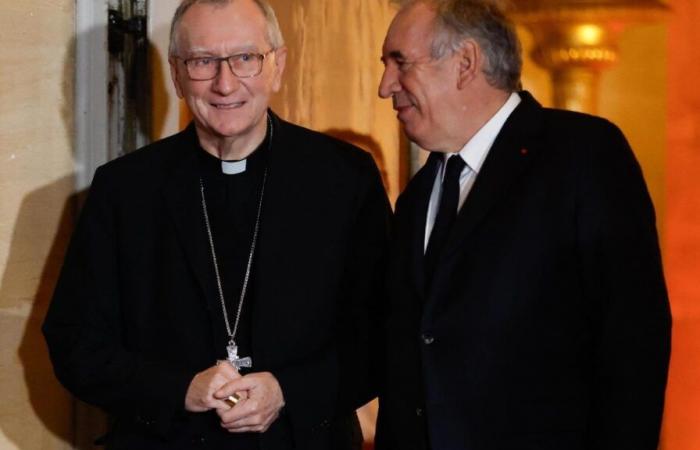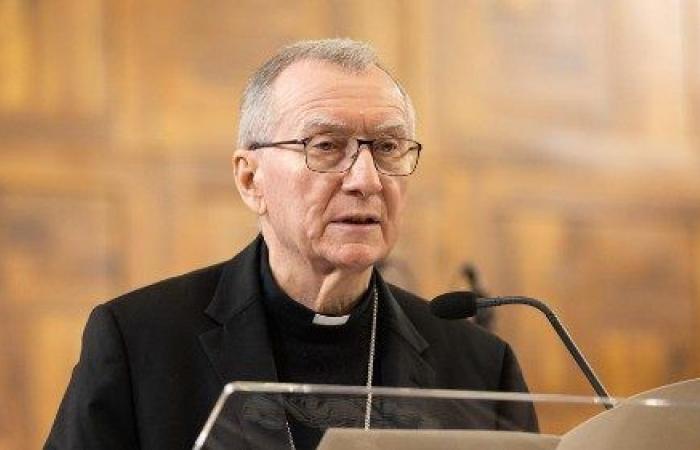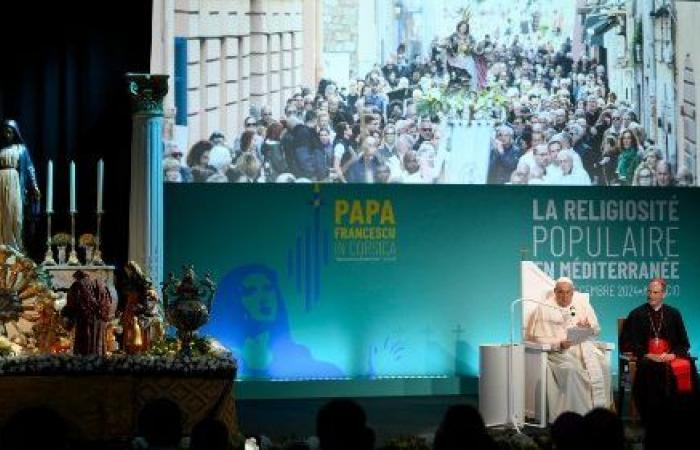During a two-day visit to Paris, the Secretary of State of the Holy See participated in a conference on Thursday January 16 at the Quai d’Orsay commemorating the centenary of the Poincaré-Cerretti agreement which gave legal status to the Catholic Church in France. In his intervention, Cardinal Parolin recalled the model of “healthy secularism” mentioned by the Pope during his trip to Corsica, while calling for maintaining peaceful and constructive relations between civil and religious authorities.
Alexandra Sirgant – Vatican City
The day after his meeting with the head of the French government François Bayrou, Cardinal Pietro Parolin went to the Quai d’Orsay to participate in a conference, entitled “Continuity and relevance of the Poincaré-Cerretti agreement of 1924», alongside the Minister of Foreign Affairs Jean-Noël Barrot, the apostolic nuncio Mgr Celestino Migliore and the president of the Conference of Bishops of France Mgr Éric de Moulins-Beaufort.
In his speech, the Secretary of State of the Holy See celebrated the longevity of this agreement, stemming from the correspondence in January 1924 between the apostolic nuncio at the time, Mgr. Bonaventure Cerretti, and the President of the Council, Raymond Poincaré. After “twenty years of disputes and tensions between the French Republic and the Holy See», generated by the legal vacuum born from the law of 1905 relating to the separation of Churches and State, the Poincaré-Cerretti agreement allowed the establishment of diocesan associations respecting the hierarchical authority of the bishop. “If it was not unanimous within the Church, no one would dream of calling it into question today.»said Cardinal Parolin.
Fraternity guarantor of respect for secularism
The Italian cardinal then focused on the founding French concept of secularism, not “questioned in principle» but of which “the particular interpretation and manner in which it is understood, invoked or applied may raise concerns, especially when it is associated with anti-religious sentiments or undermines traditions“. Recalling the Pope’s plea for a “healthy secularism» during his trip to Ajaccio on December 15, the Secretary of State called for the development of “an evolving and dynamic secularism, capable of adapting to varied contexts and promoting continuous cooperation between civil and religious authorities».
-And “the arrival of populations of diverse cultural and religious origins sometimes calls into question secularism as it has been constructed in France», Cardinal Parolin invites us to appeal to another founding value of the French Republic: fraternity. “Resolving these tensions requires respecting the balance between the equality of citizens and their freedom of conscience, a balance that only fraternity can make possible.» he explained.
The diplomat of the Holy See stressed his hope that Catholicism would, like other religions, always be treated with respect for the equality before the law of all citizens and respect for all beliefs, as stipulated in the law of 1905 and the French Constitution.
Reconstruction of Notre-Dame, fruit of good collaboration between Church and State
The Secretary of State regretted the frequent ostracization of the Church, also highlighting the enthusiasm aroused in France on December 7 and 8 during the “reopening» of the Parisian cathedral. “This enthusiasm was not simply a strong symbol, but also the expression of everyone’s aspirations: to find themselves in complete serenity in a holy place which has spanned the ages, marking the great moments of French history for 850 years.» he stressed. Five years after the fire which ravaged the cathedral, “Our Lady, in the splendor of her rediscovered and magnified beauty, offered everyone a moment of grace, fraternity and communion.».
«How, then, can we not underline in the light of this recent example, how good relations between Church and State, while respecting secularism, have been essential and complementary in restoring France to its Parisian jewel? » the cardinal asked. He concluded his speech by expressing the Holy Father’s wish to “maintain peaceful and constructive relations between Church and State».









